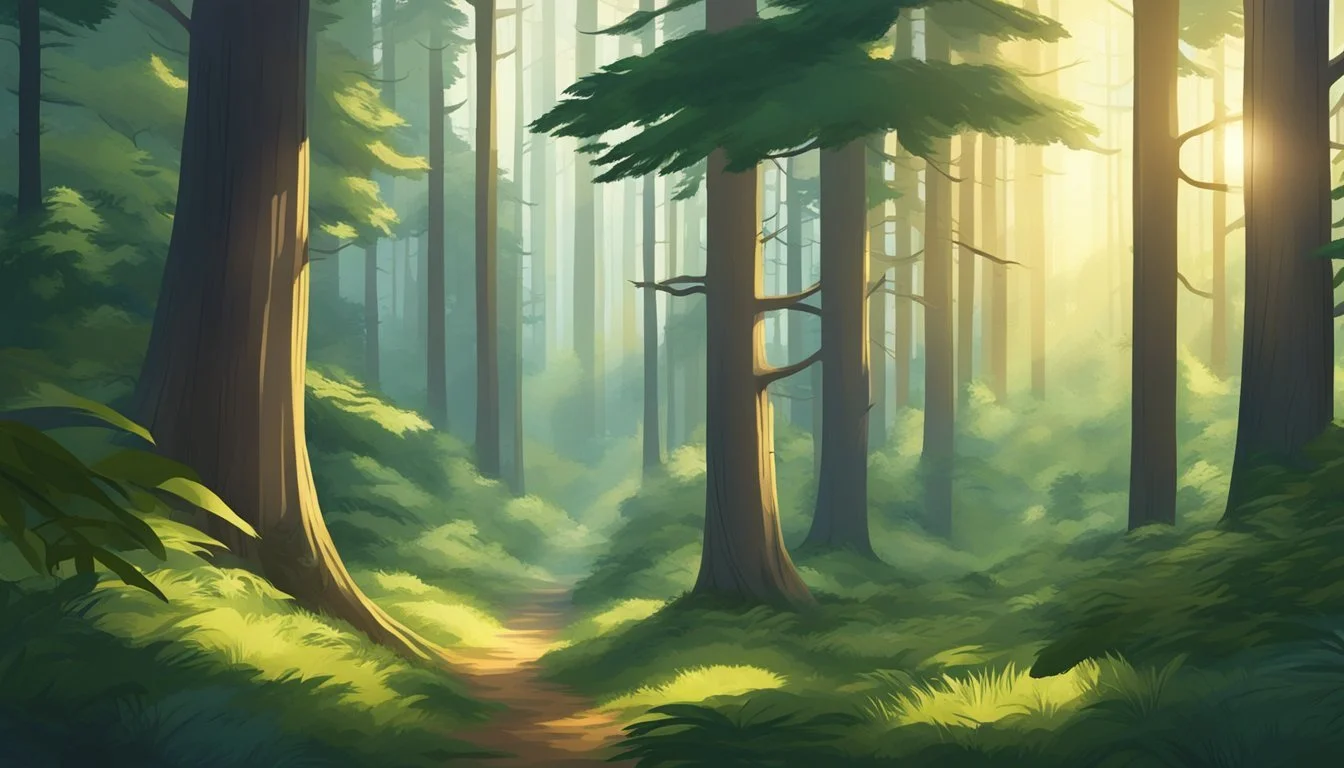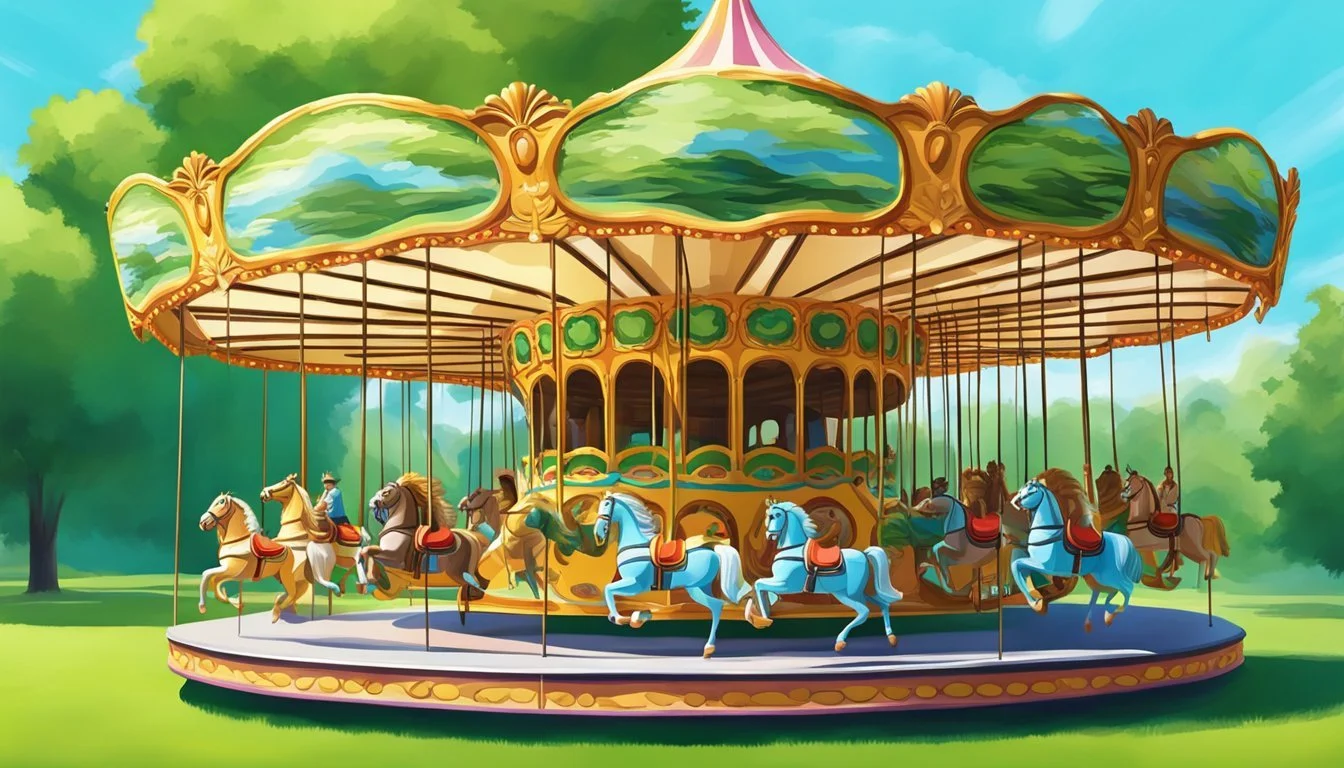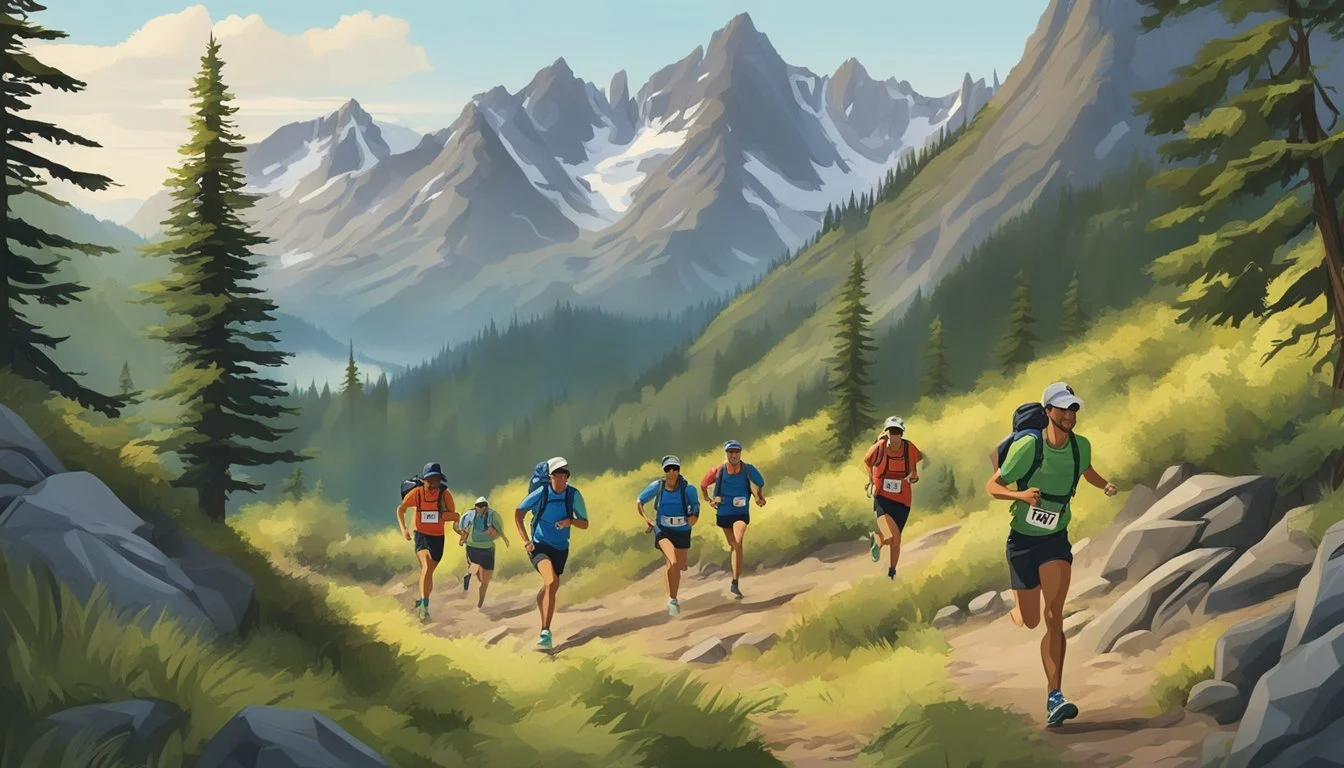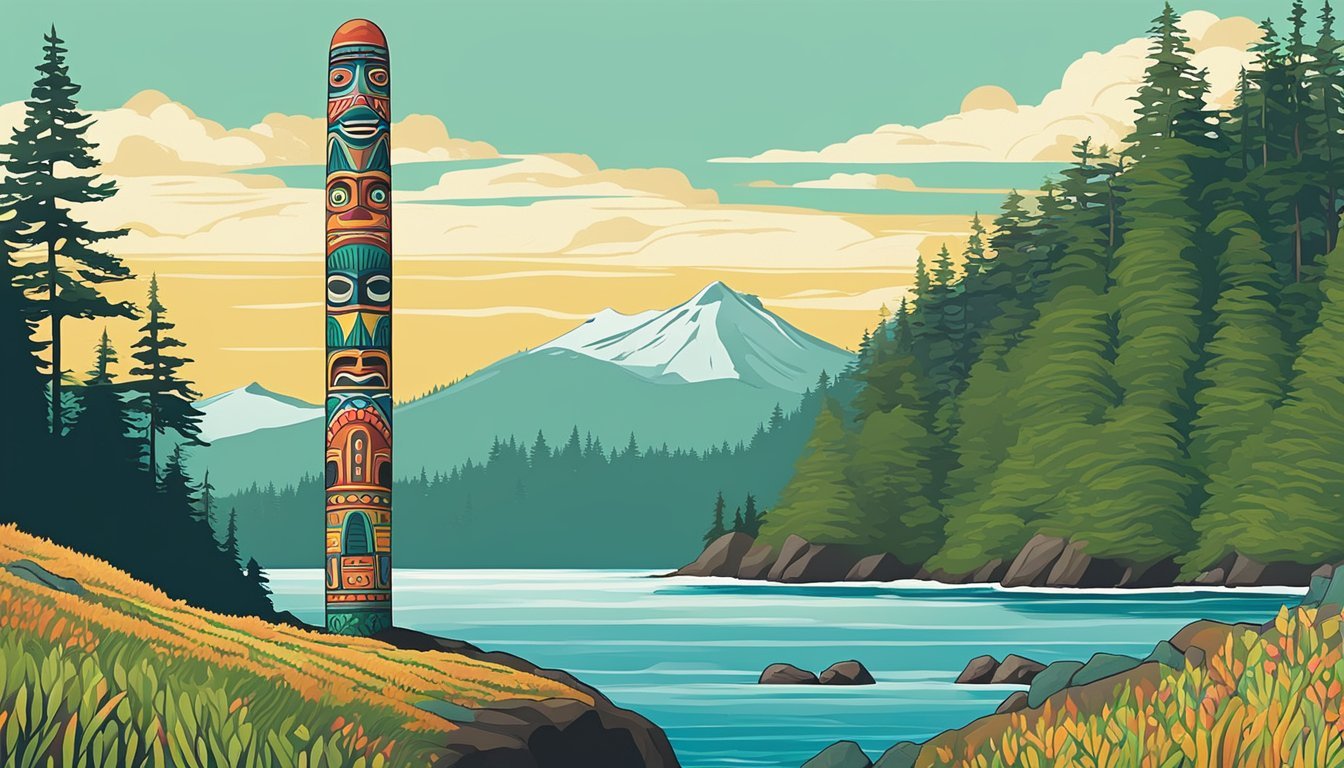5 Compelling Documentaries on Washington State
Unveiling the Pacific Northwest's Hidden Gems
Washington State offers a rich tapestry of history, culture, and natural beauty that has been captured in numerous compelling documentaries. From its vibrant cities to its breathtaking landscapes, the Evergreen State provides fertile ground for filmmakers to explore diverse topics and untold stories.
These documentaries provide viewers with deep insights into Washington's environmental challenges, social issues, and unique cultural heritage. By showcasing the state's triumphs and struggles through the lens of talented filmmakers, these films offer audiences a chance to connect with Washington's past and present in meaningful ways.
1) 'The Lavender Scare' by Josh Howard
'The Lavender Scare' is a powerful documentary that sheds light on a dark chapter in American history. Directed by Josh Howard, the film explores the systematic persecution of LGBTQ+ individuals in the United States government during the 1950s and beyond.
The documentary reveals how President Eisenhower's 1953 executive order led to a witch hunt against federal employees suspected of being homosexual. It examines the widespread belief that gay men and lesbians posed a threat to national security.
Howard's film combines archival footage, expert interviews, and personal accounts to paint a vivid picture of the era. It highlights the devastating impact of the government's actions on countless lives and careers.
The documentary also showcases the resilience of those who fought against discrimination. It tells the story of Frank Kameny, a government astronomer who became a pioneering gay rights activist after losing his job.
'The Lavender Scare' serves as a reminder of the importance of civil rights and the ongoing struggle for equality. It offers a compelling look at a lesser-known aspect of American history that continues to resonate today.
2) 'The Long Shadow' by Frances Causey
'The Long Shadow' is a thought-provoking documentary directed by Frances Causey. The film explores the lasting impact of slavery and racial discrimination in the United States.
Causey, a former CNN Senior Producer and Emmy-Award winning director, takes a personal approach to the subject matter. She examines her own family's legacy of white privilege and its connection to broader societal issues.
The documentary traces the historical roots of anti-black racism from slavery through the Black Codes and Jim Crow laws. It highlights how these systems have shaped American society for centuries.
Causey interviews experts and delves into archival footage to present a comprehensive look at racial inequality. The film challenges viewers to confront uncomfortable truths about America's past and present.
'The Long Shadow' received widespread distribution, reaching over 90% of the country through various platforms. It serves as both a history lesson and a call to action, encouraging viewers to reflect on their own roles in perpetuating or dismantling systemic racism.
3) 'The Forest for the Trees' by Bernadine Mellis
'The Forest for the Trees' is a 2005 documentary directed by Bernadine Mellis. The film offers an intimate look at a team of activists and civil rights workers as they challenge the U.S. government.
At the center of the story is Dennis Cunningham, a 68-year-old civil rights lawyer and the director's father. Cunningham's legal career began with representing high-profile groups like the Black Panthers and the Weathermen.
The documentary follows a legal case involving environmental activist Judi Bari. It examines the complexities of civil rights litigation and environmental activism in the United States.
Mellis's film provides a unique perspective on the intersection of family, law, and activism. It showcases the dedication of individuals fighting for justice through the legal system.
'The Forest for the Trees' has been screened in educational settings, sparking discussions about storytelling in times of climate crisis. The film serves as both a personal narrative and a broader commentary on social justice issues.
4) 'Top Spin' by Sara Newens and Mina T. Son
'Top Spin' is a captivating documentary that delves into the world of competitive table tennis. Directed by Sara Newens and Mina T. Son, the film follows three teenage athletes as they pursue their Olympic dreams.
The documentary focuses on Northern California's Ariel Hsing and Lily Zhang, along with Michael Landers. These young players navigate the challenges of balancing their personal lives with the demands of professional competition.
'Top Spin' offers viewers an intimate look at the often-overlooked sport of table tennis. The film showcases the dedication and skill required to excel at the highest levels of the game.
Premiering at DOC NYC in 2014, 'Top Spin' received positive reviews for its engaging portrayal of the athletes' journeys. The documentary highlights the intense training and sacrifices made by these young competitors.
Through its 80-minute runtime, 'Top Spin' provides insight into the physical and mental aspects of table tennis. The film captures the excitement of matches and the personal growth of its subjects as they strive for Olympic glory.
5) 'The Mountain Runners' by Brian Hockenstein and Todd Warger
'The Mountain Runners' chronicles America's first mountain endurance race, the Mount Baker Marathon, which took place in Bellingham, Washington. The documentary explores the grueling 28 to 32-mile race that ran from 1911 to 1913.
Directed by Todd Warger and Brian Young, the film uses a docudrama style to recreate the challenging event. Participants raced to the glacial summit of Mount Baker and back, facing extreme conditions and inherent dangers.
The documentary features interviews and insights from various experts and personalities. Kevin Tighe, known for roles in 'Emergency!' and 'Lost', contributes to the narrative. William B. Davis, famous as the "Smoking Man" from 'The X-Files', also appears in the film.
'The Mountain Runners' sheds light on an often-overlooked piece of Washington State's athletic history. It showcases the determination and spirit of early 20th-century adventurers who pushed their limits in this pioneering endurance race.
The film combines historical footage, reenactments, and expert commentary to bring this forgotten event to life. It offers viewers a glimpse into the challenges faced by these early athletes and the reasons behind the race's short-lived existence.
Historical Impact of Documentary Filmmaking in Washington State
Documentary filmmaking in Washington State has played a significant role in shaping public perception and policy. Influential figures and studios have emerged from the region, while key historical events have been captured and explored through the lens of documentarians.
Influential Figures and Studios
Washington State has produced several notable documentary filmmakers and studios. John Grabowska, known for his environmental films, has showcased the state's natural beauty in works like "Crown of the Continent." Seattle-based production company Hullabaloo Studios has created impactful documentaries on social issues affecting the region.
The University of Washington's film program has nurtured talent, with graduates like Lynn Shelton gaining recognition for their documentary work. KCTS 9, Seattle's public television station, has been a crucial platform for local documentarians, producing and airing films that highlight Washington's diverse communities and challenges.
Significant Historical Events
Documentary films have captured pivotal moments in Washington State's history. The 1999 WTO protests in Seattle were extensively documented, with films like "This Is What Democracy Looks Like" providing a ground-level view of the events.
Environmental documentaries have played a crucial role in conservation efforts. "The Memory of Fish" chronicled the removal of the Elwha Dam, influencing public opinion on river restoration. Films about the Mount St. Helens eruption, such as "The Fire Below Us," have preserved this geological event for future generations.
Labor movements in Washington have also been subjects of influential documentaries. "Labor Wars of the Northwest" explored the state's rich history of worker activism, contributing to public understanding of labor rights.
Unique Landscapes and Cultures in Washington
Washington State boasts a remarkable diversity of landscapes and vibrant cultural traditions. From lush rainforests to arid deserts, the state's varied ecosystems support unique plant and animal life. Native American heritage and pioneering history have shaped Washington's rich cultural tapestry.
Diverse Ecosystems
Washington's geography spans from the Pacific coastline to the Cascade Mountains and beyond to the Columbia Plateau. The Olympic Peninsula features temperate rainforests, with towering old-growth trees draped in moss. East of the Cascades, the landscape transforms into rolling hills and semi-arid steppe.
The Columbia River Gorge cuts through the Cascade Range, creating a dramatic backdrop of cliffs and waterfalls. Alpine meadows and glaciers crown the volcanic peaks of Mount Rainier and Mount St. Helens. The Palouse region showcases gently rolling hills of fertile farmland.
Washington's varied habitats support diverse wildlife, including orcas, salmon, bald eagles, and elk. The state's ecosystems range from coastal tidepools to subalpine forests, each with its own unique flora and fauna.
Cultural Heritage and Traditions
Native American tribes have called Washington home for thousands of years, leaving a lasting impact on the state's culture. Totem poles, cedar longhouses, and intricate basketry showcase traditional craftsmanship. Tribal fishing rights and salmon ceremonies remain important cultural practices.
Pioneer settlements brought new traditions to the region. The state's agricultural heritage is celebrated through farmers markets and harvest festivals. Maritime culture thrives in coastal communities, with seafood festivals and wooden boat shows.
Seattle's tech industry and music scene have shaped modern Washington culture. The city's coffee culture has spread globally. Asian and Latino immigrants have enriched the state's cultural diversity, influencing cuisine and community traditions.







